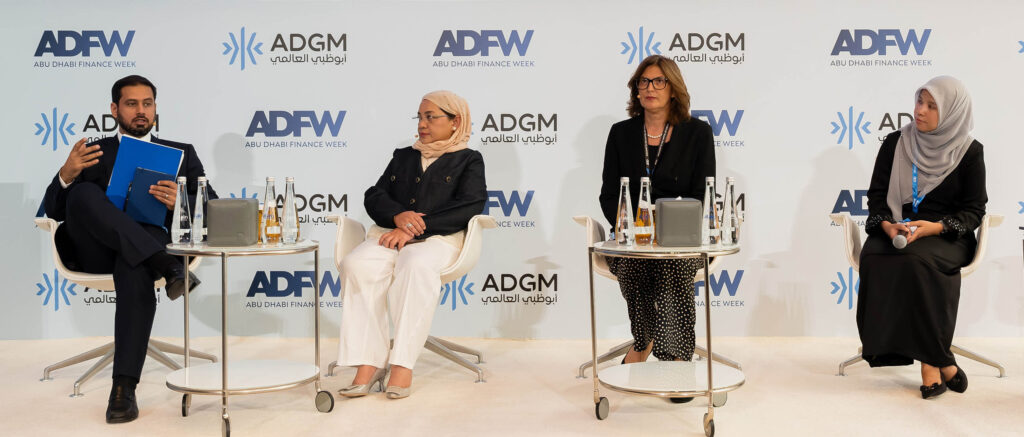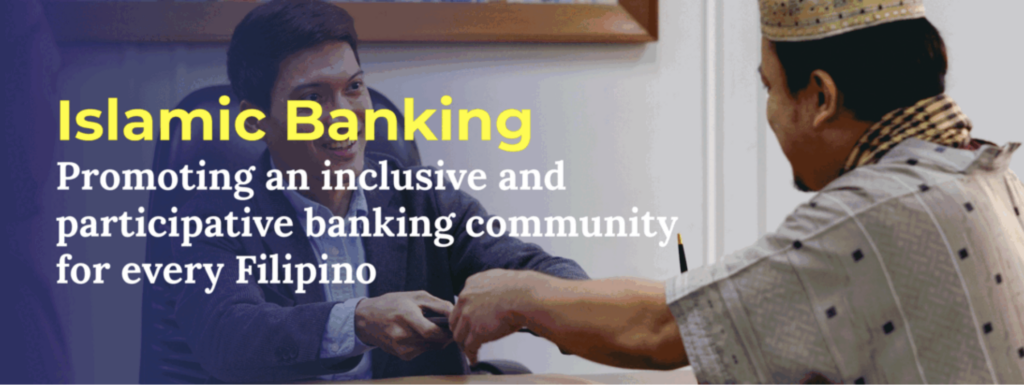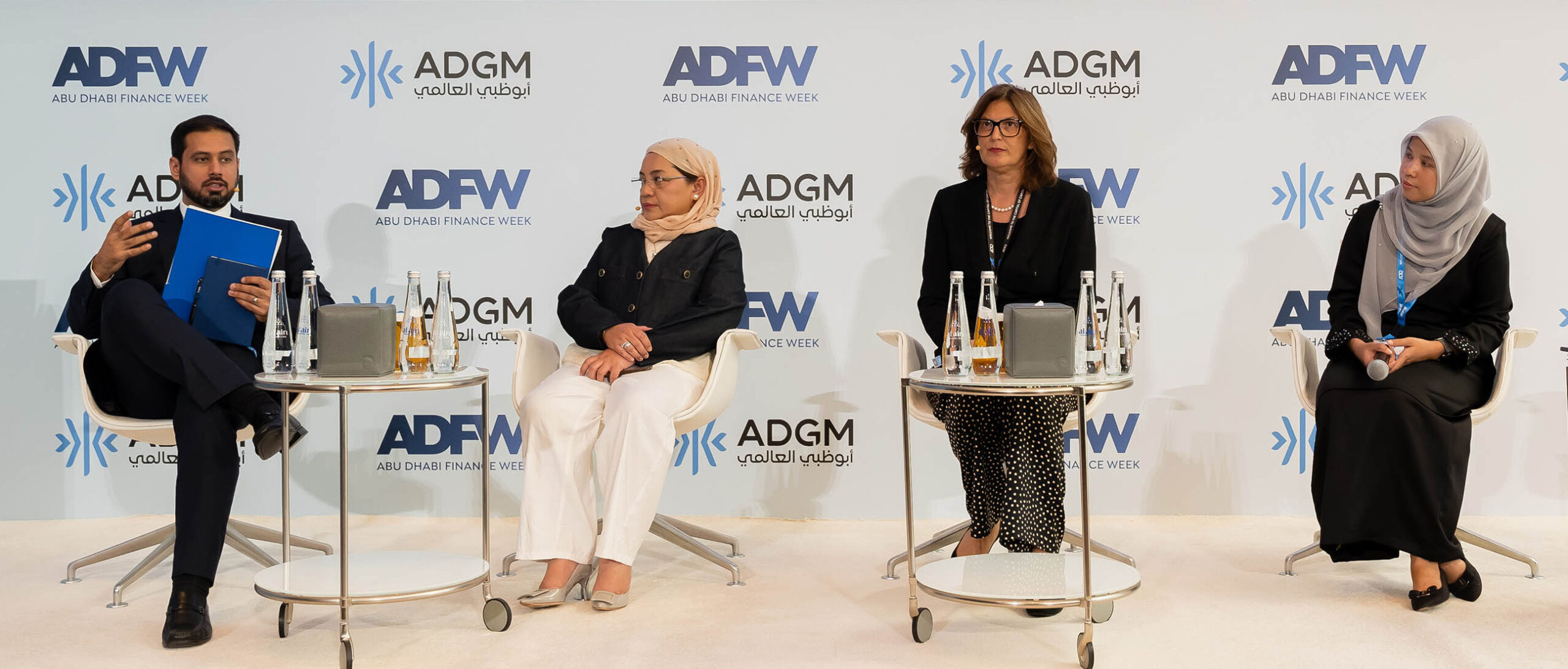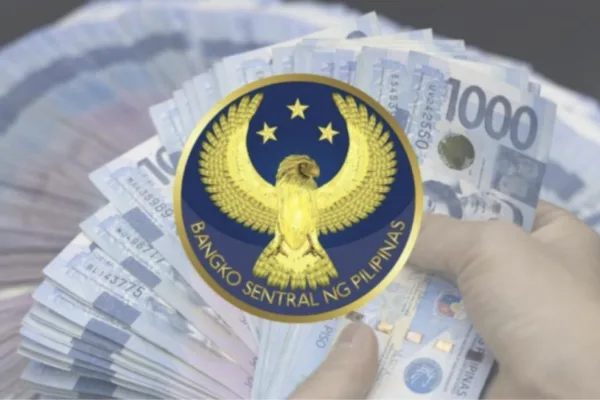The Philippines is making significant strides in developing its Islamic finance sector, a message underscored by Bangko Sentral ng Pilipinas (BSP) officials at the recent Abu Dhabi Finance Week (ADFW).
Held from December 9 to 12, 2024, the ADFW provided a platform for global financial leaders to discuss emerging trends and success stories in Islamic finance.

BSP Assistant Governor Arifa A. Ala (2nd from left) participates in the Abu Dhabi Finance Week at Abu Dhabi, UAE. With her are (from left:) London Stock Exchange Group’s Head of Islamic Finance Mustafa Adil, Banca d’ Italia Financial Attaché Angela Di Maria, and Bank Negara Malaysia Director of Islamic Finance Department Nurul Izza Idris.
Assistant Governor Arifa A. Ala, the BSP’s lead advocate for Islamic banking and finance, represented the central bank at the event, sharing updates on the country’s progress.
She highlighted the licensing of two new Islamic banking players, a key development following the enactment of the Islamic Banking Law in 2019. This legislation, she explained, opened the Philippine financial system to greater participation in Islamic banking, fostering a more inclusive financial landscape.
BSP actively leading Islamic finance efforts in PH
“The BSP has actively led the Islamic Finance Coordination Forum, bringing together key regulatory agencies and institutions to create a viable Islamic finance ecosystem that works alongside the conventional banking system,” Ala stated.
She also emphasized the central bank’s proactive approach to regulatory reforms and licensing, which has spurred increased investor interest in the sector.
Ala also detailed the Philippine government’s commitment to supporting Islamic finance through various initiatives.

These include tax reforms introduced by the Bureau of Internal Revenue, Takaful (Islamic insurance) guidelines issued by the Insurance Commission – leading to the licensing of the country’s first Takaful operators – and the successful issuance of the Philippines’ first sovereign Sukuk (Islamic bond) in December 2023.
The establishment of the Shari’ah Supervisory Board further reinforces the government’s dedication to ensuring Shari’ah compliance within the sector.
“These initiatives have expanded the range of Islamic financial products and services available to our population. These also demonstrate the readiness of our regulatory framework to support diverse market participants,” Ala explained.
She also referenced an Asian Development Bank (ADB) report, “Unlocking the Potential of Islamic Finance in the Philippines: A Market Analysis and Landscape Report,” which revealed that 70% of Filipino Muslims prefer Islamic financial services but are often compelled to utilize conventional, interest-based products due to limited access to Shari’ah-compliant options.
The study further highlights the country’s substantial growth potential in Islamic finance and the increasing demand for such services. This highlights a significant untapped market potential for Islamic banks.
The ADB report, which was launched in the Philippines in November 2024, also points to several factors driving this potential. These include the country’s growing economy, the government’s push for financial inclusion, a significant unbanked population, the substantial financing needs of micro, small, and medium enterprises, and strong interest from Filipino businesses and retail clients in Islamic financial services.

Fostering a conducive environment for growth of Islamic finance
BSP Governor Eli M. Remolona, Jr., speaking at the Philippine launch of the ADB report, emphasized the central bank’s commitment, with ADB support, to fostering a regulatory environment conducive to the growth of Islamic finance.
According to the BSP Governor, this commitment has translated into concrete actions, including the granting of the first Islamic Banking Unit (IBU) license to a rural bank in June 2023, followed by another license to a commercial bank in July 2024. Both IBUs were inaugurated in 2024, marking the entry of new players into the Philippine Islamic banking industry.
BSP Deputy Governor Chuchi G. Fonacier emphasized the importance of leveraging the opportunities presented by Islamic finance to create a more inclusive financial system. The BSP has been working to create a level playing field for both conventional and Islamic banks, applying the same regulations with supplemental guidelines to accommodate the unique features of Islamic banking.
The ADB report also highlights regulatory reforms designed to promote tax neutrality between Islamic and conventional finance transactions. The creation of the Islamic Finance Coordination Forum and the operationalization of the Shari’ah Supervisory Board in the Bangsamoro Autonomous Region in Muslim Mindanao (BARMM) further strengthen the framework for Islamic finance development.
ADB Co-Team Leader Asghar Ali Syed encouraged exploration of the investment opportunities highlighted in the report, emphasizing the potential to contribute to the Philippines’ economic development while providing ethical and socially responsible financial solutions.
The BSP and ADB have also taken their message to the international stage, presenting their findings at Islamic finance roadshows in Malaysia and Indonesia in September 2024, further demonstrating the Philippines’ readiness to welcome global investors.
Ala concluded her talk by stressing the need for continued public awareness and capacity-building initiatives, recognizing that Islamic banking and finance can be a powerful tool for promoting inclusive and sustainable economic growth in the Philippines.








